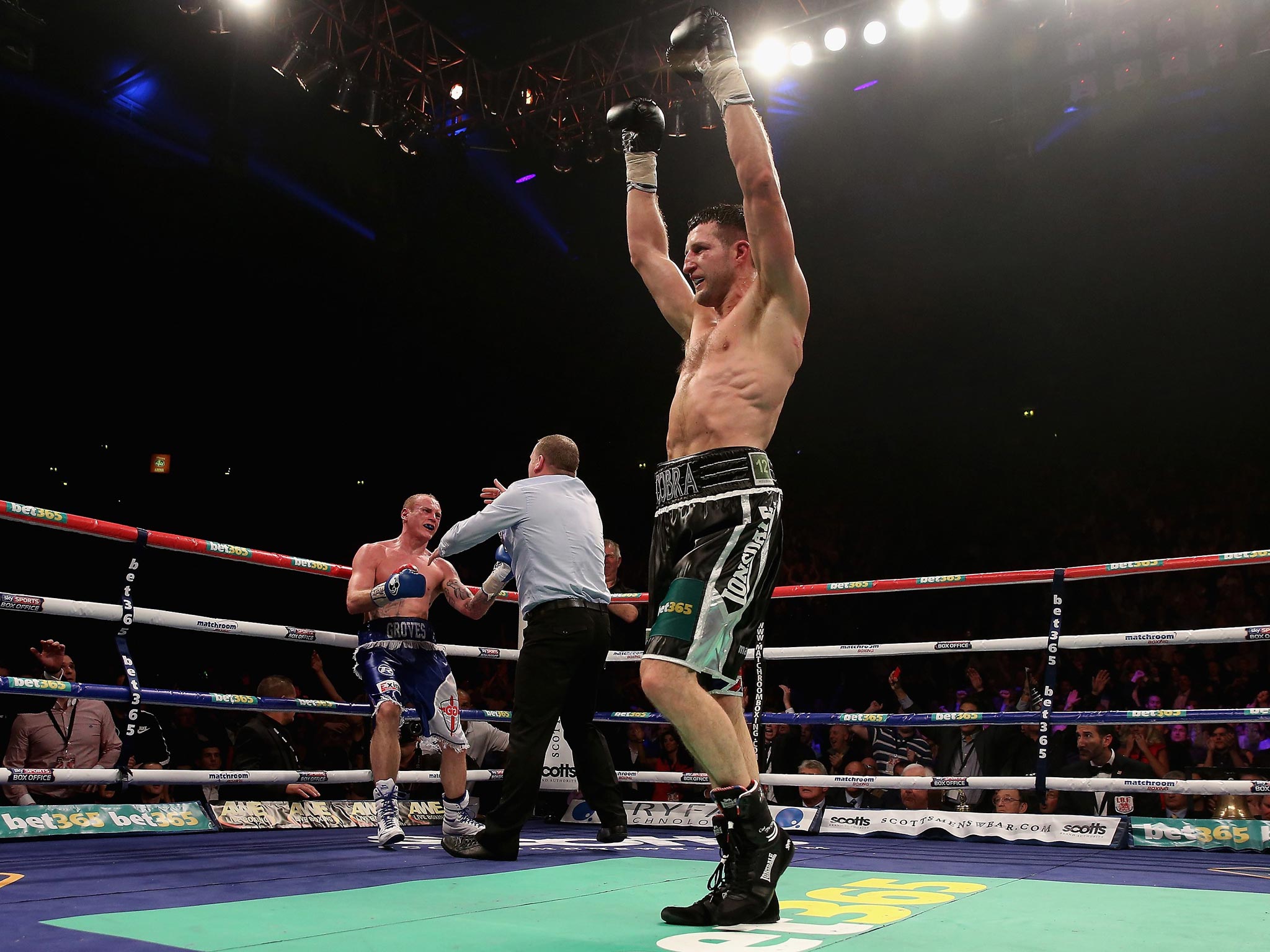Carl Froch retires: The Cobra leaves his mark as a true champion - Steve Bunce
COMMENT: Fighter who took on anyone in their own back yard hangs up gloves

It has taken Carl Froch just over 13 months to tell everybody what he knew when he left the ring in front of 80,000 people at Wembley Stadium in May last year.
When his precious right hand landed flush and knocked out George Groves in round eight, Froch decided to never fight again. Yesterday morning, after six months of half-hearted negotiations for a couple of dubious ring returns, he finally announced his retirement.
Froch is 38 now, a happy dad, a veteran of 13 years of professional fights, four years as an elite amateur, 12 world title tilts and a consecutive sequence of quality encounters that is surely the best ever by a British boxer.
Steve Bunce's top five British boxers of the last 25 years
Show all 5“I always said that a champion has to act like a champion – and that means never saying no to a fight,” said Froch. “I had to travel to fight the best because the alternative was to stay home and handpick my opponents; too many boxers do that. I always wanted to be remembered as a real world champion.”
In 2000, amateur boxing’s political agenda denied Froch an Olympic box-off in Sydney that he would have easily won and in 2001 he became the first English boxer to win a medal of any colour at the world amateur championships in Belfast.
He turned professional the following year, fighting live on the BBC and steadily learning his trade in boxing’s backwaters against Britain’s hardest men. It is a part of the Carl Froch story that has sadly been lost in the often awkward mix of first-person references, atrocious television cameos and ill-advised comments.
A long way from the glare, he perfected his business slowly, honed his body in four years of British and Commonwealth title fights, showing a patience on both sides of the ropes that he later came to regret. “I should have been a star sooner,” he said – and he is right. He won the vacant WBC super-middleweight title, as an underdog in his home town of Nottingham, against the unbeaten Canadian Jean Pascal in 2008’s British fight of the year.
Just over three million people watched the Pascal slugfest on ITV yet, amazingly, his first defence, which was in the United States, was not shown live on the channel, which was a shame because it was exceptional. Froch was dropped, trailing on two of the three scorecards against Jermain Taylor when he found the punches to end the fight with just 14 seconds left in the final round.
His next fight was in Nottingham and he squeezed out a win against previously unbeaten Andre Dirrell. In his next defence, he was off to Denmark to meet Mikkel Kessler. It was close, the 10,000 local fans could have been influential and Froch lost a tight decision.
Froch was on a relentless journey to the very core of what makes boxing so thrilling and at the same time so heart-breaking. He was determined to stay on the ride, ignoring any suggestions he was due an easy night, which he was.
After the Kessler loss, I urged him on these pages to take a rest; he never listened and the hard fights continued with pit-stops in Helsinki and twice in Atlantic City immediately after the Denmark excursion. He was fighting the very best in the world in their arenas, winning and losing like a selfless brawler from the 1950s captured in a vintage picture. “It is all I know,” he said to me, one late night in Nottingham.
He changed promoters, managers and television along the way, upset a few people, insulted a few and kept winning when people thought he would lose. His stoppage of unbeaten Lucien Bute in 2012, coming off the back of the Andre Ward loss, was a shock, especially to Bute, who has never really recovered.
He beat Kessler in a glorious rematch at London’s O2 when grown men cried, and then he had back-to-back drama with Groves. It is a career that we will never see again because of his stubborn insistence on fighting the very best.
On a personal note, I can’t remember a single time in the last 15 or so years when Froch has not returned a call – and that is not something I can say about most fighters I have been privileged enough to cover over the last 30 years.
Only a crazy person would not miss Froch and, sadly, a lot of crazy people live in the boxing business.
Subscribe to Independent Premium to bookmark this article
Want to bookmark your favourite articles and stories to read or reference later? Start your Independent Premium subscription today.

Join our commenting forum
Join thought-provoking conversations, follow other Independent readers and see their replies